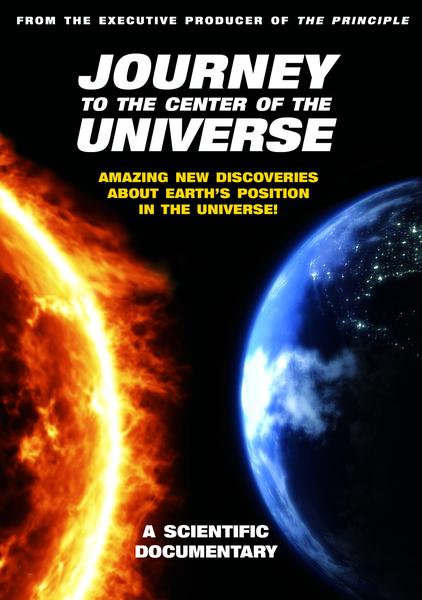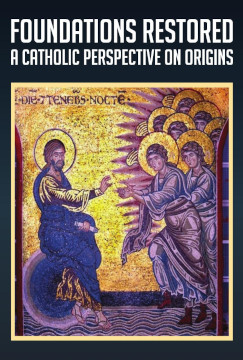- Welcome to St. Isidore forum.
Recent posts
#1
Theology / Catholic Teaching on IVF - Que...
Last post by Geremia - April 14, 2024, 04:33:18 PM #2
General Discussion / Randall Terry's completed ads ...
Last post by Geremia - April 03, 2024, 01:36:09 PM- Judgement
- Beautiful people
- The Devil Went Down to Democrats
- Joe Biden Enemy Of Children
- Abortion Is Worse Than Slavery
- 13 AD #1 Final Cut Export
- 8 AD #2 The Black Community is Bamboozled Final Cut
- 10 AD #3 Biden, Kamala, and the KKK Final Cut
- 10 Abortion is Worse than Slavery Final Cut
- 14 AD #1 Black Leaders Sold Us Out Final Cut Export Copy 01
source: Terry2024.com
#3
Catholic Resources / Re: Writings of the saints and...
Last post by Geremia - March 20, 2024, 10:57:05 AMThank you.
Quote from: kerrysky on March 20, 2024, 06:00:31 AMThe Incorruptibles by Joan Carroll Cruzis in the e-book library already.
#4
Catholic Resources / Re: Writings of the saints and...
Last post by kerrysky - March 20, 2024, 06:00:31 AMQuote from: Geremia on March 04, 2024, 04:37:32 PMThank you. This one is not already in the e-book library:The Author is Giuseppe Caccioppoli who also wrote Extensive Padre Pio Website on https://caccioppoli.com/Quote from: kerrysky on March 02, 2024, 11:41:14 PMSt Padre Pio - Timeline, Words, FactsWho is the author?
https://disk.yandex.com/i/UE-8cti-UeKr9g

I just uploaded some of my favorite books on archive.org under the name kerrysky, you might take a look and download the books here:
https://archive.org/details/@kerrysky
Some of the Featured Books
No Greater Love by Mother Teresa
https://archive.org/details/no-greater-love-mother-teresa
Pray, Hope, and Don't Worry - True Stories of Padre Pio by Diane Allen
https://archive.org/details/pray-hope-and-dont-worry-true-stories-of-padre-pio-1
The Incorruptibles by Joan Carroll Cruz
https://archive.org/details/the-incorruptibles-cruz-joan-carroll-5859-1
Miracles of the Church Collection - With Photos
https://archive.org/details/miracles-of-the-church-collection-with-photos
I hope you like them

You can also do a search on archive.org for books of a particular saint such as St Augustine of Hippo and they will come up, I get most of my books from there.
#5
General Discussion / Happy feast of St. Joseph! 🥳 🎉
Last post by Geremia - March 19, 2024, 02:40:08 PMPope St. Pius X (Giuseppe Sarto)'s prayer to San Giuseppe (Oct. 1906, ASS 40 (1906) 59, Raccolta #439):
Quote from: Pope St. Pius XO Ioseph, virgo Pater Iesu, purissime Sponse Virginis Mariæ, quotidie deprecare pro nobis ipsum Iesum Filium Dei, ut, armis suæ gratiæ muniti, legitime certantes in vita, ab eodem coronemur in morte.
Quote from: Pope St. Pius XO Joseph, virgin-father of Jesus, most pure Spouse of the Virgin Mary, pray every day for us to the same Jesus, the Son of God, that we, being defended by the power of His grace and striving dutifully in life, may be crowned by Him at the hour of death.
#6
Forum-Related / IPFS links added
Last post by Geremia - March 11, 2024, 02:26:39 PMThe various archives are now on the Interplentary File System (IPFS). See the "IPFS" links in the banner above.
#7
Forum-Related / IPFS links added
Last post by Geremia - March 11, 2024, 02:26:23 PMThe various archives are now on the Interplentary File System (IPFS). See the "IPFS" links in the banner above.
#8
Theology / St. Thomas Aquinas assistant
Last post by Geremia - March 07, 2024, 05:25:26 AMInspired by the Thomas Aquinas Emulator (based on the proprietary ChatGPT Plus), introducing its open-source analogue, the
Example:
Happy feast of the Angelic Doctor today, whose angelic intellect no machine could ever mimic, but who gave us solid principles upon which to build!
powered by HuggingChat and the Mixtral-8x7B Large Language Model (LLM), a pretrained generative Sparse Mixture of Experts.
Example:
Quote from: Mixtral-8x7BArticle: I. Whether a Pope Can Fall into Heresy?
Objection 1: It seems that a Pope cannot fall into heresy. For the Church is compared to the body of Christ (1 Corinthians 12:12), and it is written that "the gates of hell shall not prevail against it" (Matthew 16:18). Now, a heretical pope would seem to be a part of the Church who holds something contrary to faith; therefore he would not be able to resist the power of hell.
Objection 2: Further, every heretic departs from the unity of the Church. But a Pope, as the Vicar of Christ on earth, is the bond of unity among men (Ephesians 4:13): consequently, he cannot himself be a schismatic or a heretic.
On the contrary, Augustine says (De Haeresibus lxiii, qu. xxxiv): "If he who is placed over others becomes a heretic, he ceases to be their pastor."
I answer that, As stated above (Q[75], A[1]), heresy consists in obstinately holding a doctrine condemned by the Church. Now, it belongs to the essential duty of the Pope to hold the deposit of faith delivered to him by tradition and handed down through the Fathers (cf. Catechism of the Catholic Church, 890). If, however, a Pope were to fall into heresy, he would no longer possess that faith which he is bound to profess and hand on to others. Therefore, if such a case arises, the faithful have the duty, according to the words of Saint Robert Bellarmine (De Romano Pontifice, III, cap. ii, n. 10), to "reject as erroneous and heretical any dogmatic statement made by the Roman Pontiff which is known to contradict the defined doctrines of our faith."
Reply to Objection 1: This objection considers only the external aspect of the Church militant, whereas the internal aspect must also be taken into account. In this regard, we read in Ecclesiastes 4:14 that "for want of a shepherd, the people was scattered abroad," meaning that when the head of the community fails, its members may be led astray. Thus, although the Church as a whole remains invincible, individual members, including Popes, can fall away from the faith.
Reply to Objection 2: While it is true that the Pope is the visible bond of unity within the Church, his personal union with the Church does not prevent him from falling into error. However, if he should commit such an offense, the Church's spiritual authority, represented by the College of Bishops and other faithful, would remain intact to correct him and restore unity.
Sources:
St. Thomas Aquinas, Summa Theologica, Supplement: Quaestiones Disputatae de Veritate, Question 22, Articles 1-3.
Augustine of Hippo, De Haeresibus, Book LXIII, Question XXXIV.
Catechism of the Catholic Church, Section Two - The Life in Christ, Chapter One - Man's Response to God, Article 890.
Happy feast of the Angelic Doctor today, whose angelic intellect no machine could ever mimic, but who gave us solid principles upon which to build!
#9
Catholic Resources / Re: Writings of the saints and...
Last post by Geremia - March 04, 2024, 04:37:32 PMThank you. This one is not already in the e-book library:
But these already are; I've added links directly to them:
Quote from: kerrysky on March 02, 2024, 11:41:14 PMSt Padre Pio - Timeline, Words, FactsWho is the author?
https://disk.yandex.com/i/UE-8cti-UeKr9g
But these already are; I've added links directly to them:
Quote from: kerrysky on February 01, 2024, 01:52:44 AMThe Autobiography of Venerable Archbishop Fulton J. Sheen
Quote from: kerrysky on December 25, 2023, 03:17:01 AMThe Little Catechism by St John Marie Vianney
Quote from: kerrysky on September 14, 2023, 11:30:48 PMLife and Revelations of St Gertrude the Great
Quote from: kerrysky on August 10, 2023, 10:05:26 PMSt Francis de Sales Collection (all[15] of his books)
#10
Catholic Resources / Re: Writings of the saints and...
Last post by kerrysky - March 02, 2024, 11:41:14 PMBook of the day (Sunday, 3rd of March 2024)
St Padre Pio - Timeline, Words, Facts
https://disk.yandex.com/i/UE-8cti-UeKr9g
Source: https://freecatholicebooks.wordpress.com/
St Padre Pio - Timeline, Words, Facts
https://disk.yandex.com/i/UE-8cti-UeKr9g
Source: https://freecatholicebooks.wordpress.com/






